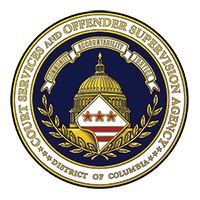In a recent publication from the DC Policy Center, Robin Selwitz explores the myriad obstacles individuals who have been involved in the criminal justice system face when seeking employment.
Involvement in the criminal justice system leads to a litany of aftereffects, commonly known as collateral consequences, which can result in unanticipated burdens to those trying to reintegrate into society and lead productive, law-abiding lives. These collateral consequences can make it difficult to secure stable housing and gainful employment, among other issues. Mounting research indicates that there are significant benefits for our communities in helping justice-involved individuals overcome barriers to employment and other collateral consequences.
In the District’s highly competitive and saturated job market, gainful employment remains an intractable challenge. For some, it is further compounded by the additional challenges posed by their history of involvement with the justice system. One promising mechanism to address unemployment for men and women with criminal histories is entrepreneurship. Watch our latest episode of DC Public Safety to learn more about the innovative approaches to addressing this issue in the District.
Read more on Obstacles to Employment for Returning Citizens in DC on the DC Policy Center website.




